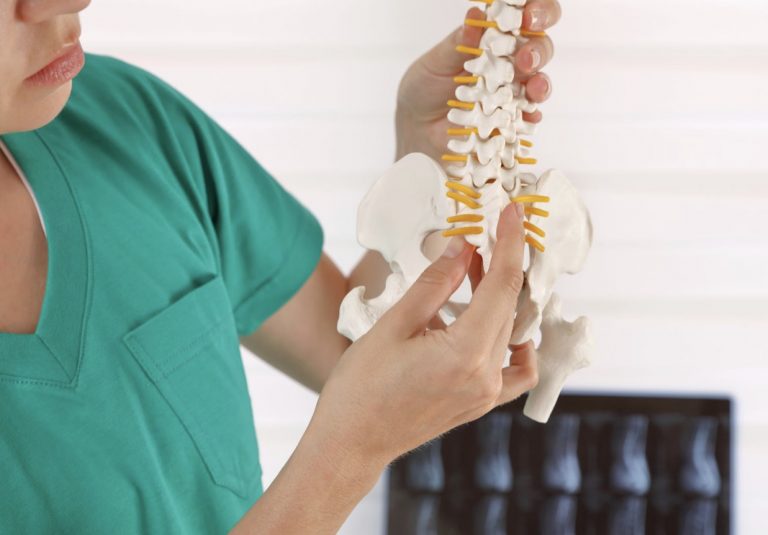What is Nerve Decompression Surgery?
Spinal nerve decompression surgery is the removal or adjustment of bony material or tissue that is pressing on or compressing a nerve root or the spinal cord. Nerve compression can be caused by a number of spinal conditions, including bone spurs and damaged discs, most of which arise during the natural aging process. Nerve decompression treatment can be approached both surgically and nonsurgically. Traditional open spine surgical nerve decompression is highly invasive, takes place in a hospital, and requires a lengthy recovery.
While traditional surgical procedures might be more intense, BEST Health System believes in approaching surgeries in the least invasive way possible. The medical professionals on the BEST team specialize in noninvasive treatment options which allows patients to return to normal sometimes three times quicker than at alternative practices.
Non Surgical nerve decompression therapy is performed using mechanical traction devices and while the FDA has approved the procedure, studies on its effectiveness have come up inconclusive. If you believe you could benefit from nerve decompression surgery, continue reading to learn more.
Symptoms of Nerve Compression
Bone spurs, herniated discs, bulging discs, and other anatomical abnormalities do not always pinch nerves, and therefore, do not always exhibit symptoms. These conditions can produce nerve compression, at which point a patient might experience localized or radiating pain, tingling, numbness, or muscle weakness.
The location of the compressed nerve or nerves determines the areas of the body where symptoms occur. Below is a list of the areas of the body affected by nerve compression in each of the four major regions of the spine:
- Cervical (neck) nerves: Occurs in the head, neck, shoulders, arms, elbows, wrists, handse, fingers, and diaphragm.
- Thoracic (upper back) nerves: Occurs in the hands, chest, back, abdomen, heart, lungs, liver, stomach, and internal organs.
- Lumbar (lower back) nerves: Occurs in the legs, feet, abdomen, lower back, and reproductive organs
- Sacral (pelvic) nerves: Occurs in the legs, bowel, bladder, and reproductive organs.
Am I a Candidate for Nerve Decompression Surgery?
If patients with nerve compression have tried out different conservative treatment options and do not find relief, there is a good chance they are a candidate for nerve decompression surgery. Additionally, if the nerve pain is intense and prohibits patients from completing necessary tasks, there is a better chance they may be recommended for a surgical treatment.
Before considering nerve decompression surgery, here are some conservative treatment options that may offer you relief:
- Rest
- Physical therapy
- Injections
- Bracing
If after trying these alternate forms of treatment a patient continues to feel pain, there is a chance they might be a candidate for nerve decompression surgery. Typically, a patient should try these methods for multiple weeks to a few months to ensure surgery is absolutely necessary.
Recovery
After a patient endures nerve decompression surgery, there is a recovery time associated. Typically, patients are expected to be able to walk around a few days after the procedure and should return to full mobility between 3-6 weeks. If a patient is not experiencing any relief a few weeks after their procedure, they should set up a follow-up appointment with their surgeon to ensure everything is healing correctly and that they are on track to a healthy recovery.
Minimally Invasive Nerve Decompression at BEST
Symptoms associated with nerve decompression generally can be managed using conservative methods, including pain medication and physical therapy. However, surgery might become an option if chronic pain persists after several weeks or months of conservative treatment. Rather than settle for traditional open spine surgery, more than 75,000 patients have found relief at BEST Health System.
At BEST Health System, our team performs minimally invasive spine procedures that eliminates hospital-associated and the period of recuperation is much shorter than that required byt traditional open spine surgery. Contact BEST Health System today with any questions or concerns you have about nerve decompression surgery.
